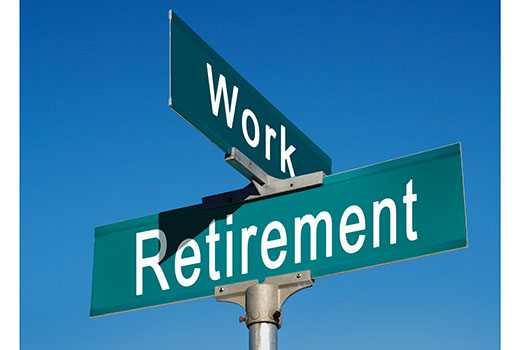Baby boomers, those Americans born between 1946 and 1964, are retiring at a rate of about 10,000 a day.
On average, members of this group, comprising approximately 79 million people, feel nine years younger than their actual ages. The boomer generation has changed society at every juncture of its developmental life, and it is predicted that boomers will also change perceptions about retirement.
Retirement for many baby boomers may simply mean transitioning to a different type of work. According to research by GoBankingRates.com, 30 percent of people age 55 and over claim to have no retirement savings, and an additional 26 percent reported less than $55,000 in a retirement account. Eighty-four percent of current retirees receive an average monthly Social Security check of $1,317. Six in 10 boomers, according to Pew Research, are postponing retirement.
What does all this mean? It indicates a potential financial crisis for many, if not most, Americans over 65.
“I have never had anyone tell me they put too much money in their retirement account,” said Robert Grant, resource development director for the Baptist Foundation of South Carolina and former director of the church administration office of the South Carolina Baptist Convention. Grant said the average SCBC pastor has approximately $87,000 in his retirement account, but a married couple will need at least $400,000 for their retirement years.
 How much money does a retired couple need in order to meet their monthly expenses? A married couple living in South Carolina would need a minimum of $3,600 to $4,000, Grant said. When the same question was posed to a number of recently retired ministers across the state, the answers ranged from $3,000 to $5,000, with an average of $4,200.
How much money does a retired couple need in order to meet their monthly expenses? A married couple living in South Carolina would need a minimum of $3,600 to $4,000, Grant said. When the same question was posed to a number of recently retired ministers across the state, the answers ranged from $3,000 to $5,000, with an average of $4,200.
One of the problems current retirees fear is running out of money before they die. U.S. News & World Report cited five baby boomer trends: reinventing retirement, better health and longer life spans, do-it-yourself retirement planning, staying in the work force longer, and carrying more debt into retirement than previous generations (the median amount was $24,500 in 2012).
The financial goal for those entering retirement is to have no debt. For ministers who have a housing allowance, the goal should be to have no debt except for a home mortgage. Grant said that a minister who is planning for retirement and withdraws money from his tax-sheltered retirement account to pay off a home mortgage is losing money. “It is better to increase the amount in the housing allowance and even pay more on the principal each month than withdrawing money from a GuideStone account to pay off a home mortgage,” he noted. “That results in the annuitant paying 20 percent in taxes on that money. What you want is to pay for your house with tax-free money” (i.e., fund a housing allowance with tax-sheltered money like a GuideStone annuity account).
Today there are more older pastors — and fewer younger pastors — serving in ministry than 25 years ago. The opportunity for retired ministers to work in some type of ministry in the church may be greater now than ever before.
It is estimated that as many as 70 percent of Americans expect to continue working in some capacity once they “retire.” In the so-called retirement years, sources of income will come from several avenues: Social Security, retirement savings (like an IRA, 401k, etc.), regular savings accounts, personal investments, and employment (part-time, consulting, etc.). For most baby boomers, and for future generations, retirement will likely include some type of work following a long-term career.
The negative impacts of entering one’s retirement years include decreasing health, less mobility, and a fixed income that is likely to be less than the recommended 80 percent of one’s working salary. Downsizing one’s living quarters or taking out a reverse mortgage are two more options for helping fund the retirement years. Modifying a couple’s living space is often a wise strategy — including walk-in tubs, wider doors, having a bathroom and bedroom on the same floor, lower light switches, lower countertops, higher electrical outlets and some type of personal alert system.
Grant is concerned about ministers who may have opted out of Social Security but have not been depositing 15 percent of their income into some type of retirement account. “Most are not saving anything for retirement,” he said. “I would say that maybe 90 percent of pastors are not wired to think of living in retirement.”
Baby boomers will continue to flood the retirement arena for another 12 years. Then, around 2048, the largest generation in American history, the millennials (born from around 1982 to roughly 2004) will begin entering retirement. Social Security may not be viable by then, and effective retirement planning will be even more important.

